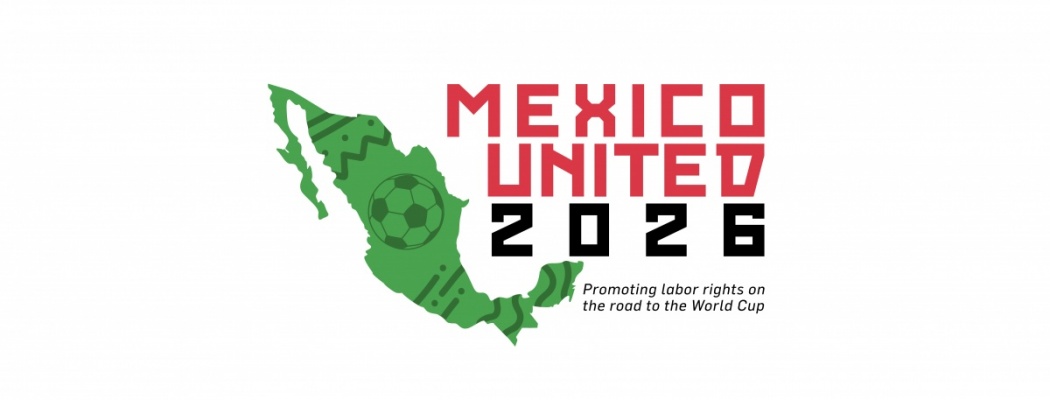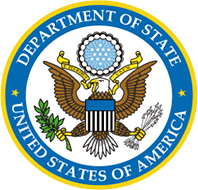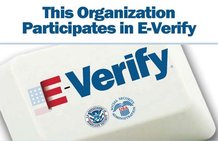Partners connects people and institutions across and within the Americas to create lasting solutions to the hemisphere’s toughest challenges through its Chapters, development programs, and exchange programs.
Explore our map below to learn about Partners’ current Chapters and programs by country.
Regions
Mexico
Partners has been working in Mexico since 1965, when our first Mexico chapter was founded. Since 2011, our A Ganar program has empowered at-risk youth in one of the country’s most dangerous cities, Ciudad Juarez, with the skills and training to secure work or further education. Since 100,000 Strong in the Americas launched in 2014, nearly 20 Mexican institutions have been primary and partner recipients of Innovation Grants.
Chapters
- Capítulo de Jalisco
Overview
Leadership
Position Name Contact Information* President Aurea M. Díaz Vélez Contact President Art Sandoval M. Contact Secretary Irma Leticia Alvarez O. Contact *(Users must have a PartnersConnect account to access - log in or create one today!)Useful Links
(Users must have a PartnersConnect account to access - log in or create one today!) - Capítulo de Yucatán
Overview
The Yucatan, Mexico Chapter and the Iowa, U.S. Chapter are bound to work together in a "Partnership" with certain stated goals and objectives. We have defined as our main goal "to improve the understanding of each of our sister counterparts, along defined lines according to our geography and culture", working "shoulder to shoulder", regardless of our religion and political beliefs. We also have the support of the Iowa Sister States organization, which together with the Iowa Chapter has supported very interesting projects.
Leadership
Chapter Email: [email protected]
Position Name Contact Information* President William Chay Contact Vice President Elias M. Alcocer P. Contact Secretary Paulina Espinosa R. Contact Treasurer Martha Trujeque Lara Contact *(Users must have a PartnersConnect account to access - log in or create one today!)Useful Links
(Users must have a PartnersConnect account to access - log in or create one today!) - PartnersCampus Universidad La Salle, Oaxaca
- PartnersCampus Universidad Politécnica de Guanajuato
100,000 Strong in the Americas

The 100,000 Strong in the Americas (100K) Innovation Fund expands opportunities for higher education institutions to create partnerships and launch innovative student exchange and training programs. This opens access to underrepresented student populations, improves workforce development training, increases public-private investment, and strengthens people-to-people ties between the United States and Latin America and the Caribbean.
Education exchanges have long been used as a tool to foster international cooperation and promote technical, linguistic, and intercultural skills development for students to operate in an increasingly globalized world. Created in 2013 by the White House’s National Security Council, the U.S. Department of State’s Bureau of Western Hemisphere Affairs, Partners of the Americas, and NAFSA: Association of International Educators, the 100K Innovation Fund is an impactful hemisphere-wide education initiative that creates dynamic regional collaboration across the private sector, foundations, government entities, NGOs, and academia to support higher education partnerships and increase the number and diversity of students in the Americas who have access to innovative training and exchange programs.
Unlike traditional scholarship programs, which support individual students or faculty, the 100K Innovation Fund stimulates innovation at the institutional level and provides critical funding on a competitive basis to higher education institutions across the Americas to build partnerships that result in innovative student exchange and training programs that are scalable and sustainable. To learn more about 100K Innovation Fund grants and other opportunities, visit https://www.100kstrongamericas.org.
$9.8Million in grants awarded25Countries and 49 U.S. states and territories benefited from grant programs572Higher education institutions formed partnerships for international collaboration7,100+Student and faculty beneficiariesImproving Substantive Gender Equality in the Mexican Workplace
Improving Substantive Gender Equality in the Mexican Workplace seeks to improve gender equity in the Mexican workplace by working to increase women’s leadership in unions, strengthen protections for women workers, end workplace harassment and abuse, and advocate for equal pay. This project is funded by the U.S. Department of Labor's Office of Trade and Labor Affairs.
To ensure a demand driven, locally-led and sustainable project, the project will collaborate with civil society organizations to reach workers and worker organizations (unions and confederations), and employers and employer associations, to incorporate a gender equity perspective into current programming.
The project strategy is based on principles of a women worker-centered approach, sustainability, and cross-collaboration between workers, employers, unions, government, and civil society.
3Regions targeted: Chihuahua, Jalisco, and Zona Metropolitana del Valle de México5of Mexico’s largest worker organizations expected to be engaged, along with other smaller and more-specialized organizations12+Implementing and resource partners expected to collaborate2Sectors focused on with large populations of women workers (call centers and electronics manufacturing)Mexico Awareness Raising Project

The Mexico Awareness Raising Project integrates and expands upon existing efforts in Mexico to promote information about the 2019 Mexican Labor Reform. Funded by the U.S. Department of Labor (USDOL), this project will be implemented over a period of 4.5 years, from January 2021 to June 2025.
To advance the success of the project, Partners of the Americas (Partners) is collaborating with implementing partner Social Accountability International (SAI), a highly experienced international organization in advancing human rights in the workplace. On the local level, the project’s sub-awardees include the Mexican Center for Migrant Rights (Centro de los Derechos del Migrante, CDM) and the Border Committee on the Rights of Workers (Comité Fronterizo de Obreras y Obreros, CFO). The project’s resource partners also include various prominent labor rights organizations, unions, and confederations in key five trade subsectors of Mexico: mining, auto assembly, auto parts, steel/aluminum, and electronics. The project will work in industrial clusters in these priority sectors across the Mexican states. The project’s partner organizations working in these key industries include the Federation of Independent Unions of the Automobile, Autopart, Aerospace and Tire Industries (Federación de Sindicatos Indepdendientes de la Industria Automotriz, Autopartes, Aeroespacial y del Neumático, FESIIAAAN), the Autonomous Front of Workers (Frente Autonomo de Trabajadores, FAT), and the National Union of Mining, Metallurgy, Steelmaking and Similar Workers of the Mexican Republic (Sindicato Nacional de Trabajadores Mineros, Metalúrgicos, Siderúgicos y Similares de la Republica Mexicana, Los Mineros).
The Mexico Awareness Raising Project’s expected outcomes integrate innovative local strategies and activities in order to improve communications and better inform and empower target groups in the mentioned sectors on labor reform. These expected outcomes include increasing the understanding of workers, employers, and union leaders on how to utilize Mexico’s new labor systems to protect labor rights and effectively address labor disputes. The project also aims to build the capacity of the federal and state level Secretariat of Labor and Social Welfare (STPS) staff and constituents from key institutions to conduct outreach regarding labor rights and implementation of the labor reforms among target audiences. By implementing these strategic outcomes, Partners and their collaborating institutions hope to equip Mexican laborers with information regarding their new legal protections so they may promote their rights in the workplace.
Funding is provided by the United States Department of Labor under cooperative agreement number IL-35868-21-75-K. 100% of the total costs of the project is financed with federal funds, for a total of U.S. $10,000,000 dollars. This material does not necessarily reflect the views or policies of the United States Department of Labor, nor does mention of trade names, commercial products, or organizations imply endorsement by the United States Government.
1Project document and performance monitoring plan completed and approved by the U.S. Department of Labor4Local labor organizations and unions reached to present the project3Design meetings with state-level secretaries of labor to inform the implementation of capacity-building activities with the federal-level secretary of laborCareers
See AllMexico United 2026

Mexico United 2026, a project funded by the U.S. Department of State (DOS) Office of Democracy, Human Rights, and Labor (DRL), aims to strengthen Mexico’s capacity to identify, prevent, and mitigate the impacts of the 2026 FIFA World Cup on the realization of labor rights and human rights guarantees. Through this project, Partners of the Americas’ (POA) will work to significantly reduce the risk of labor abuses and human rights violations that may arise as a result of the World Cup by increasing workers’ knowledge of labor law and international labor standards relevant to the event. To achieve this goal, POA is collaborating with local labor rights organizations, Centro de Reflexión y Acción Laboral (CEREAL), Centro de Los Derechos del Migrante (CDM), and Red de Mujeres Sindicalistas (RMS), and works closely with national and local governments and semi-autonomous institutions. Mexico United 2026 will target three cities where the United 2026 World Cup will take place in Mexico: Monterrey, Guadalajara, and Mexico City.
From 2020 to 2023, the Mexico United 2026 project will seek to increase engagement and coordination between labor rights organizations, the private sector, and independent unions. The project will help entities, such as the Government of Mexico, the International Federation of Association Football (FIFA), and the Mexican Football Federation (FMF) address and mitigate labor risks associated with the event and will strengthen the capacity of stakeholders and workers to effectively monitor and report human rights abuses. Lastly, in preparation for the United 2026 World Cup, the project will work with civil society organizations to develop a media campaign to increase awareness among the general public of Mexico’s commitments to human rights in regard to the United 2026 World Cup and the labor rights risks associated with the sporting event.


Gift of the United States Government
7Workshops on labor rights held for workers and human rights defenders74Workers and human rights defenders trained in labor and human rights11Organizations trained in labor rights violation grievance mechanisms2Networks of organizations defending labor human rights formed






